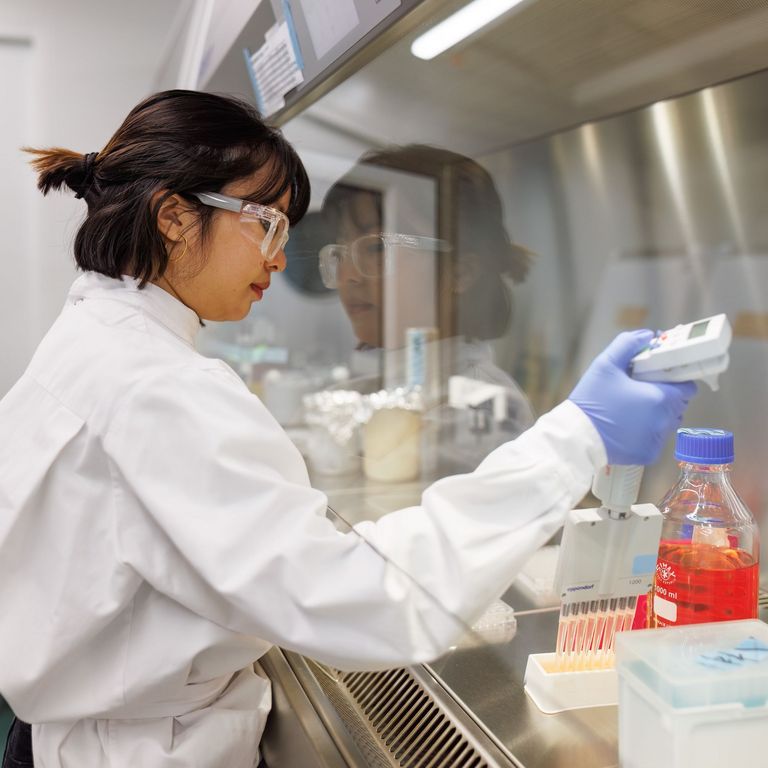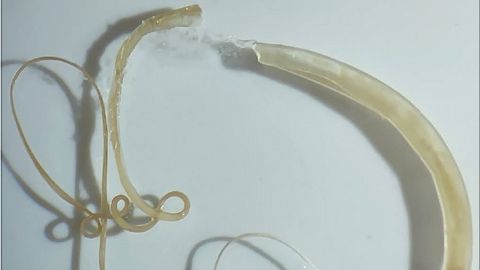

Medical Parasitology and Infection Biology
Research on Pathogen Biology, Host-Pathogen Interaction and Immunity
In the Department of Medical Parasitology and Infection Biology, we explore the molecular and cellular mechanisms underlying pathogen survival, transmission and host-pathogen interaction. We investigate how host factors influence the response to infection and disease using various models of infection as well as clinical samples from human patients. By improving our understanding of these biological processes, we hope to contribute to the control of diseases of poverty such as malaria, tuberculosis, trypanosomiasis, dengue, Buruli ulcer and helminth infections.
Research on Pathogen Evolution and Transmission
We study how pathogens evolve to evade host immune mechanisms and develop resistance to anti-microbials, and how these phenomena influence the spread of these microbes. We apply various molecular epidemiological approaches to analyze infection and transmission dynamics, and monitor the effects of interventions such as transmission control, vaccination or drug treatment on the prevalence and population structure of these pathogens.
Development of Diagnostics, Drugs and Vaccines
We use our enhanced understanding of host-pathogen biology to develop new diagnostics, drug sensitivity assays, drugs and vaccines against these diseases. We evaluate new diagnostics, and perform both pre-clinical and clinical studies of novel treatments as well as of candidate antigens and antigen delivery systems for vaccine purposes. This work also includes the development of new animal models and controlled human infection models to assess novel interventions. These activities are carried it out in collaboration with many international institutions, including our long-term partners in endemic countries.
MPI News
All NewsLatest MPI Publications
All PublicationsAdebayo G et al. The importance of murine models in determining in vivo pharmacokinetics, safety, and efficacy in antimalarial drug discovery. Pharmaceuticals (Basel). 2025;18(3). DOI: 10.3390/ph18030424
Ajayi D.T et al. Pharmacometric analysis to describe pharmacokinetics and exposure-efficacy response of ivermectin in adolescents infected with Trichuris trichiura. J Clin Pharmacol. 2025;65(4):433-440. DOI: 10.1002/jcph.6158
Arbués A, Schmidiger S, Reinhard M, Borrell S, Gagneux S, Portevin D. Soluble immune mediators orchestrate protective in vitro granulomatous responses across Mycobacterium tuberculosis complex lineages. Elife. 2025;13. DOI: 10.7554/eLife.99062
Beneke T et al. Leishmania mexicana pathogenicity requires flagellar assembly but not motility. Virulence. 2025;16(1):2521478. DOI: 10.1080/21505594.2025.2521478
D'Abbrunzo I et al. Higher-order multicomponent crystals as a strategy to decrease the IC50 parameter: the case of praziquantel, niclosamide and acetic acid. J Drug Deliv Sci Technol. 2025;109:106974. DOI: 10.1016/j.jddst.2025.106974



